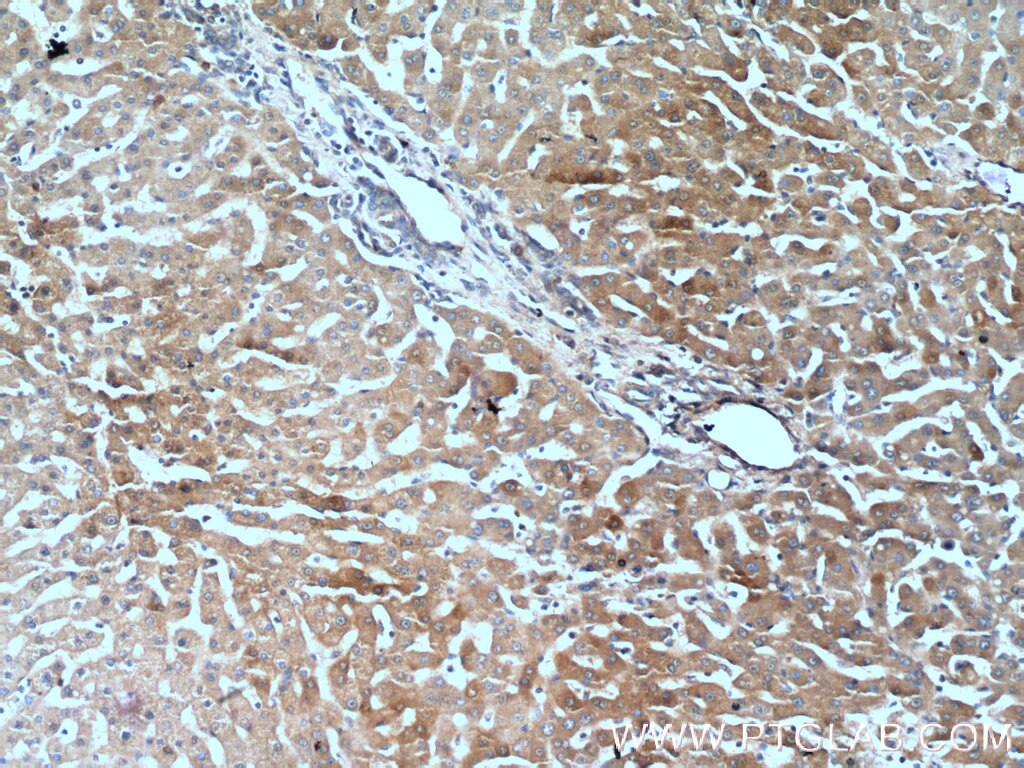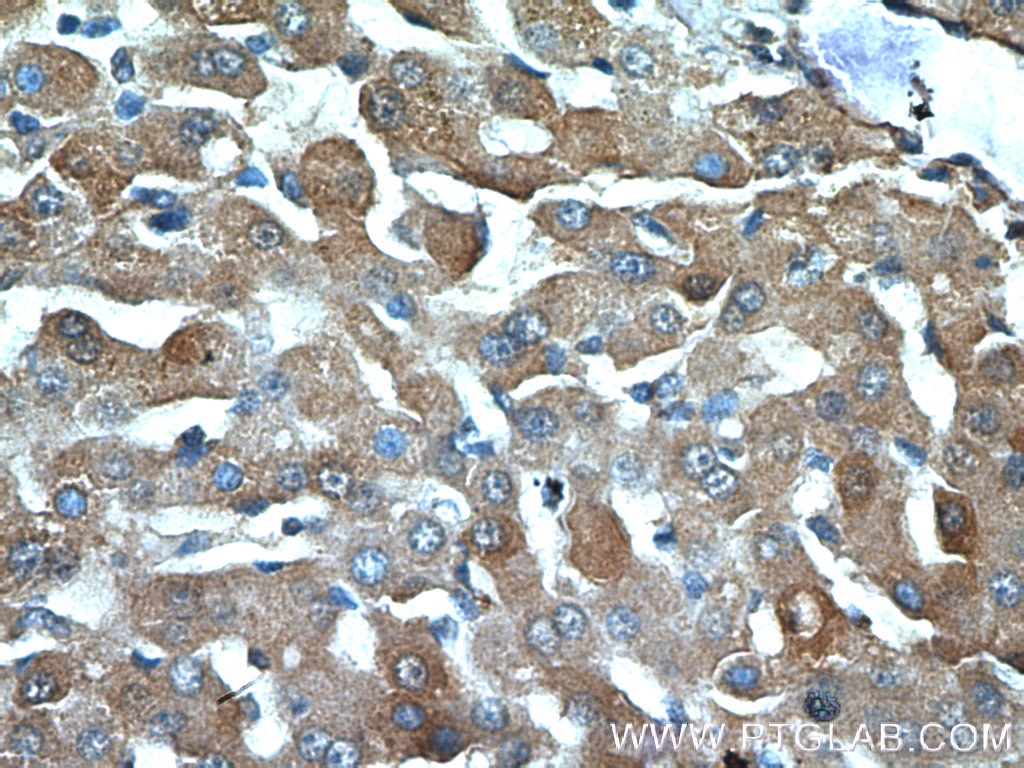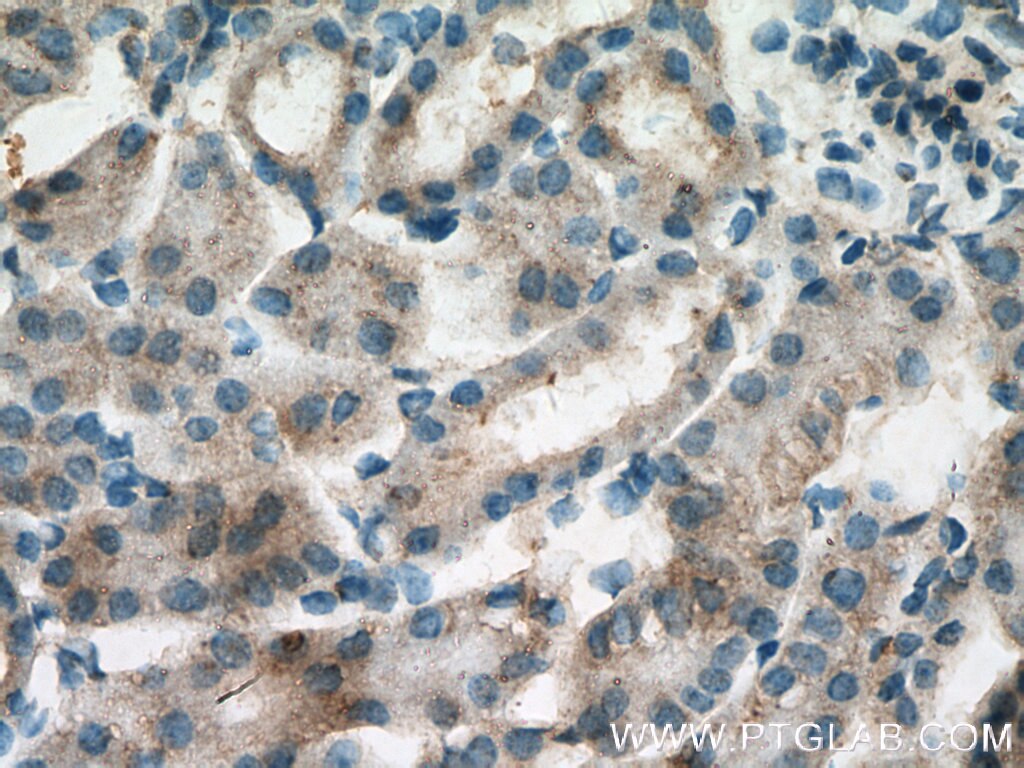Validation Data Gallery
Tested Applications
| Positive IHC detected in | human liver tissue, mouse kidney tissue Note: suggested antigen retrieval with TE buffer pH 9.0; (*) Alternatively, antigen retrieval may be performed with citrate buffer pH 6.0 |
Recommended dilution
| Application | Dilution |
|---|---|
| Immunohistochemistry (IHC) | IHC : 1:50-1:500 |
| It is recommended that this reagent should be titrated in each testing system to obtain optimal results. | |
| Sample-dependent, Check data in validation data gallery. | |
Product Information
22263-1-AP targets Polycystin 1 in IHC, ELISA applications and shows reactivity with human, mouse samples.
| Tested Reactivity | human, mouse |
| Host / Isotype | Rabbit / IgG |
| Class | Polyclonal |
| Type | Antibody |
| Immunogen |
Peptide 相同性解析による交差性が予測される生物種 |
| Full Name | polycystic kidney disease 1 (autosomal dominant) |
| Calculated molecular weight | 463 kDa |
| GenBank accession number | NM_000296 |
| Gene Symbol | Polycystin 1/PKD1 |
| Gene ID (NCBI) | 5310 |
| RRID | AB_2879053 |
| Conjugate | Unconjugated |
| Form | |
| Form | Liquid |
| Purification Method | Antigen affinity purification |
| UNIPROT ID | P98161 |
| Storage Buffer | PBS with 0.02% sodium azide and 50% glycerol{{ptg:BufferTemp}}7.3 |
| Storage Conditions | Store at -20°C. Stable for one year after shipment. Aliquoting is unnecessary for -20oC storage. |
Background Information
Polycystin 1 (PC1) is also named as PKD1, and Autosomal dominant polycystic kidney disease 1 protein, and belongs to the polycystin family. PKD1 and PKD2 are formed component of a heteromeric calcium-permeable ion channel. PKD1 is considered an orphan, atypical G protein coupled receptor complexed with TRPP2 (Polycystin 2 or PKD2), a Ca2+-permeable ion channel (PMID:27214281). PKD1 is involved in renal tubulogenesis (PMID:12482949).
Protocols
| Product Specific Protocols | |
|---|---|
| IHC protocol for Polycystin 1 antibody 22263-1-AP | Download protocol |
| Standard Protocols | |
|---|---|
| Click here to view our Standard Protocols |



